Bb7.9
Glyph line b7 was evidently designed to begin with the Full Moon at the
right ascension line of Porrima:
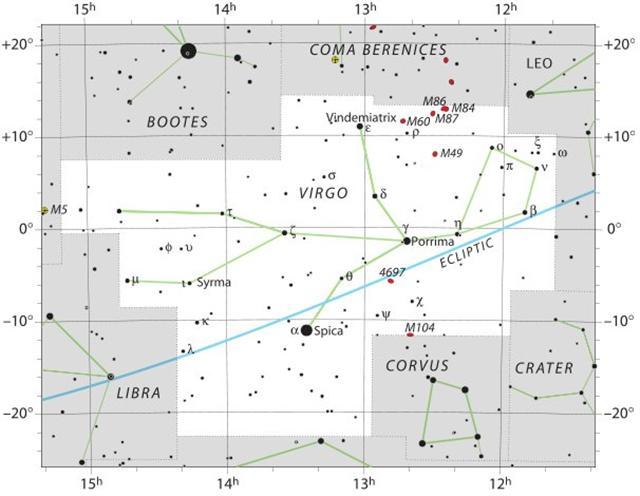
 |
 |
 |
|
Bb7-1
(244
→
300 - 56) |
Bb7-2
(666
→
722 - 56) |
Bb7-3
(273 + 365 + 29) |
|
Ku rere mai ki te manu |
e tagata hakanaganaga ia
ra |
mai tae moe |
|
Tae. 1. Negation used
in conditional and temporal clauses: ana
ta'e hoa te ûa, ina he vai, when it does
not rain, there is no water. Also used with
some verbal forms such as: o te aha koe
i-ta'e-oho mai-ai? why didn't you come?
Otherwise its use is limited to adjectives
or verbal adjectives: tagata ta'e
hupehupe, person who is not weak, hard
worker; nohoga ta'e oti, endless
existence, eternity. 2. Interjection
expressing admiration, always used with
he: ta'e he tagata! what a man!
Ta'e he aga! what a great job!
Ta'e he tagata koe mo keukeu i te henua!
what a good farmer you are! Vanaga. 1.
Prepositive negative: without, not, none. PS
To.: tae, prepositive negative. 2. To
remain; tae atu ki, as far as, until.
Taehaga (tae 1), to shake the
head in sign of negation, reluctant, to
disdain, to be displeased. 3. Pau.: tae,
to arrive. Mgv.: tae, id. Ta.: tae,
id. Ma.: tae, id. 4. Pau.: taetae,
elephantiasis in scroto. Ta.: taetae,
ill, illness. Churchill.
Mai. 1. From, since;
mai aganirá pemu'a from now on. 2.
Before, prior to (referring to a future
event certain to occur); mai ta'e oho au
ki-Hiva, prior to my leaving for the
continent (note the use of the negative,
lit. 'before I do not go...'. 3. Short for
ka-avai-mai, mai te kahu, give
me the dress. 4. Hither (movement towards
the speaker); ka-ho-mai (=
ka-oho-mai), come here! welcome!
hoki-mai-á e îa, he has come back;
ina kai garo'a-mai, he cannot understand
it; ka-to'o-mai, come and get it.
Vanaga.
Moe.
To sleep, to lie at full length, to
dream, to brood, to place, to cohabit;
moe atu, to leave off, to desist; moe
atu ra, to adjourn, to postpone; moe
hakahepo, to talk in the deep; moe
aherepo, somnambulist, sleepwalker;
moe hakataha, to sleep on the
side; moe no, to oversleep,
concubinage; moe tahae, to be a light
sleeper; moe tahaga, a
sleeper; moe vaeahatu, moe hakaroa,
to sleep sprawling; rava moe, to
sleep sound; ariga moe ki raro,
to lie flat on the ground; tae moe,
bachelor; hakamoe, to brood, to fold
the wings; to reserve, to lay up; to
struggle. P Pau.: moe, sleep. Mgv.:
moe, sleep, to lie down, coitus, to
shut the eyes. Mq.: moe, to sleep, to
lie down; haámoe, to set down on the
ground. Ta.: moe, to sleep, to lie
down. Moea raruga, lying flat.
Moeaivi, thin. Mq.: ivi,
haáivi, id. Ta.: ivi, id.
Moega, mat. Pau.: moehega, bed.
Mgv.: moega, a sleeping mat. Mq.:
moena, moeka, mat, floor cloth,
bed. Ta.: moea, bed. Moemata,
to sleep with the eyes open; mea moemata,
phantom. Moemoea, a dream, vision;
tikeahaga moemoea, apparition by
night. T Mgv., Mq., Ta.: moemoea,
dream. Churchill. Mgv. Moemoe, to
steal, to purloin at a food distribution.
Mq.: moemoe, to seize, to grasp.
Churchill. Ta.: 1. Moemoe, ambush.
Ha.: moemoe, id. 2. Moemoe,
Phyllanthus simplex. To.: mohemohe, a
tree. Churchill. Mq.: Moehu, exiled,
banished, prisoner of war. Ma.: morehu,
a survivor. Churchill. |
|
March 30
(454) |
31 |
April 1
(456 = 365 + 91) |
|
"May 8
(48) |
9 |
10 (50 =
91 - 41) |
|
JAN 25 (390) |
26 |
27 (392 =
91 - 64) |
|
HELIACAL STARS: |
|
ξ
Phoenicis (9.0),
ρ
Tucanae (9.1),
DENEB KAITOS (Tail of the Sea Beast) =
β
Ceti,
η
Phoenicis (9.4), AL NITHĀM (String of
Pearls) =
φ¹
Ceti
(9.6)
*9.4 - *41.4 = *150.0 - 182.0 =
- *32.0 |
ACHIRD (Woman with Luminous Rays) =
η
Cassiopeiae
(10.7) |
Legs-15 (Wolf)
ν
Andromedae (11.0),
φ²
Ceti (11.1),
ρ Phoenicis (11.2),
η
Andromedae (11.4)
*335.0 = *11.4 - *41.4 |
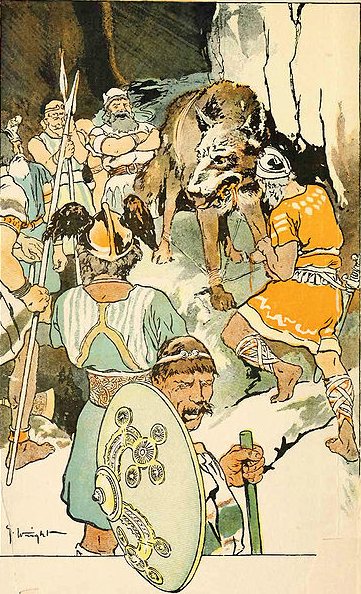 |
|
RIGHT
ASCENSION DAYS AT THE FULL MOON: |
|
Sept 28
(271) → 728 = 2 * 364 |
29 (272 =
2 * 136) |
30 (3 *
91) |
|
"Aug 18 (230 = 271 - 41) |
19 |
20 |
|
JULY 26 (207 = 271 - 64) |
27 |
28 |
|
Al Áwwā'-11 (The
Barker) /
Shur-mahrū-shirū-18
(Front or West Shur)
SOMBRERO GALAXY = M104 Virginis
(191.1),
ρ
Virginis (191.4),
PORRIMA =
γ
Virginis,
γ
Centauri (191.5)
*150.0 = *191.4 - *41.4 |
ι Crucis (192.2), β Muscae (192.5),
MIMOSA = β Crucis
(192.9) |
No star
listed (193) |
|
272 (September 29) - 64
(precessional depth down from the Fishes to
the Bull) = 208 (JULY 27) = 181 (SIRIUS) +
27 ('thrice nine hallowed days').
... As has already been
mentioned, the Delphians worshipped Dionysus
once a year as the new-born child,
Liknites, 'the Child in the Harvest
Basket', which was a shovel-shaped basket of
rush and osier used as a harvest basket, a
cradle, a manger, and a winnowing-fan for
tossing the grain up into the air against
the wind, to separate it from the chaff. The
worship of the Divine Child was established
in Minoan Crete, its most famous early home
in Europe. In 1903, on the site of the
temple of Dictaean Zeues - the Zeus who was
yearly born in Rhea's cave at Dicte near
Cnossos, where Pythagoras spent 'thrice nine
hallowed days' of his initiation - was found
a Greek hymn which seems to preserve the
original Minoan formula in which the
gypsum-powdered, sword-dancing Curetes, or
tutors, saluted the Child at his birthday
feast. In it he is hailed as 'the Cronian
one' who comes yearly to Dicte mounted on a
sow and escorted by a spirit-throng, and
begged for peace and plenty as a reward for
their joyful leaps ...
 |
Counting from the beginning of side b and the Belly of the
Goat (ω Capricorni) to the
beginning of line b7 and the star of False Death
(β Crucix, Mimosa) the distance can be counted as *192 + *366 - *315 = *243 (→
9 * 27):
|
 |
*123 |
 |
*243 |
|
BATEN
ALGIEDI
(*315) |
MIMOSA
(*192) |
|
NOV
27 (331) |
JULY 27 (208 =
192 + 16) |
|
3 * 41 + 3 * 81 =
3 * 122 = 366 = 6 * 41 + 3 * 40 = 246 + 120 |
But we should consider also the
similar figure on side a of the tablet:
|
 |
*69 |
 |
*123 |
 |
|
Ba5-8
(172) |
Bb1-3
(424) |
Bb7-2 (245,
666) |
|
May 23 (143 =
172 - 29) |
July 31 (212) |
March 31 (90,
455) |
|
MARCH 20 (79
= 143 - 64) |
MAY 28 (148) |
JAN 26 (391 =
455 - 64 = 17 * 23) |
|
HYADUM I (*63
= 143 - 80) |
ρ Hydrae
(*132) |
ACHIRD (*10 =
90 - 80) |
|
YED POSTERIOR
(*246) |
BATEN
ALGIEDI
(*315) |
MIMOSA (*192) |
|
Nov 22 (326 =
143 + 183) |
Jan 29 + 1 (395) |
Sept 29 (272
= 455 - 183 = 17 * 16) |
|
SEPT 19 (262) |
NOV
27 (331) |
JULY 27 (208 =
192 + 16) |
On side b time appears (only an illusion) to run
withershins, because March 31 (365 + 90 = 455) is indeed
243 days after July 31.

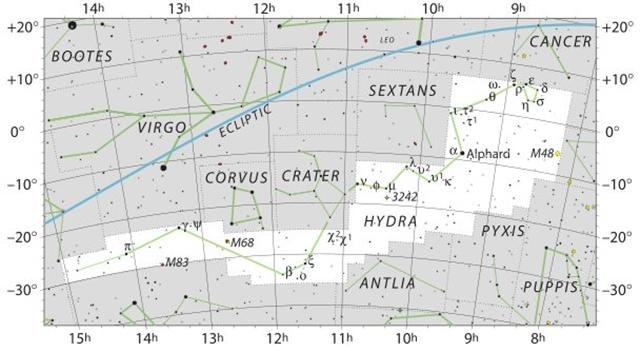
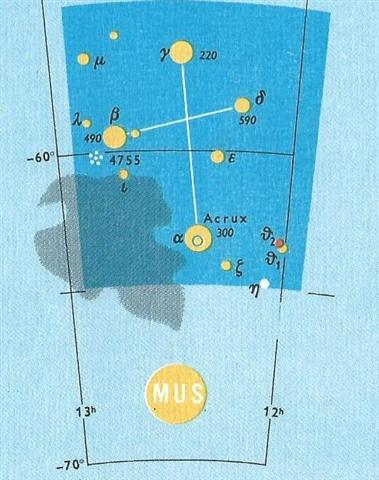
... The old man gave the Raven two
small sticks, like gambling sticks, one black, one
multicoloured. He gave him instructions to bite them
apart in a certain way and told him to spit the pieces
at one another on the surface of the sea. The Raven
climbed back up the pole, where he promptly did things
backwards, just to see if something interesting would
occur, and the pieces bounced apart. It may well be some
bits were lost. But when he gathered what he could and
tried again - and this time followed the instructions he
had been given - the pieces stuck and rumpled and grew
to become the mainland and Haida Gwaii
...
 |
 |
 |
|
Bb7-4 (13 * 19) |
Bb7-5
(248) |
Bb7-6
(670 = 664 + 6) |
|
ki te maro - ku
hokohuki ia - ki te tagata |
mai tae oho atu ki te
rima - o to haga mama ia - ku hakatepe
ia |
ki to maitaki |
|
Atu. Particle of
meaning opposite to that of mai;
it refers to the second or third person,
expressing movement away:
ka-avai-atu, give it to him:
he-oho-atu au, I am going there,
after you; i-oho-atu-era, when I
had gone there. Vanaga. 1. a. Directive,
of motion from the speaker. b. Somewhat
expressive of the comparative degree. 2.
Pupil; hakaatu, proof; hare
hakaatuga, schoolhouse, class. 3. (hakaatu),
to presage. 4. (hakaatu), mark,
object. Churchill.
Mama. 1. To chew.
2. To mouth-feed (arch.) he-mama i te
vai tôa koia ko te tiapito kiroto ki te
haha o te poki, she mouth-feeds the
child with sugarcane juice together with
tiapito juice. 3. A sea mollusc
(with an eight-horned shell). Vanaga. 1.
To leak, to ooze, (maamaa). P
Pau., Mgv., Ta.: mama, id. 2. To
chew. P Mgv., Mq., Ta.: mama, id.
3. Light not heavy, (maamaa). P
Mgv., Ta.: mama, id. 4. A limpet
(Chiton magnificus). Mgv., Mq.,
mama, a shellfish. 5. To open the
mouth; hakamama, to yawn, to
gape, to be ajar. Pau.: hamama,
to open. Mgv.: akamama, to burst
open. Ta.: haamama, to open. Mq.:
haámama, to open the mouth. 6.
Ta.: mama-orero, conclusion of a
council. Ha.: mama, to finish, to
have done with a thing. Churchill.
Kahu. Clothing,
dress, habit, cloth, curtain, vestment,
veil, shirt, sheet; kahu hakaviri,
shroud; kahu nui, gown; rima o
te kahu, sleeve; kahu rahirahi,
muslin; hare kahi, tent;
horega kahu, shirt; hakarivariva
ki te kahu, toilet; rakai ki te
kahu, toilet; patu ki te kahu,
to undress; kahu oruga, royal
sail; kahu hakatepetepe, jib;
kahu nui, foresail; hakatopa ki
te kahu, to set sail; (hecki keho,
canvas T.) P Pau.: kahu, dress,
garment, native cloth. Mgv.: kahu,
cloth, stuff, garment, clothing. Mq.:
kahu, habit, vestment, stuff, tunic.
Ta.: ahu, cloth in general,
vestment, mantle. Chuchill. |
|
HELIACAL STARS: |
|
April 2 |
3 (29
+ 64) |
4 (459) |
|
JAN
28 |
29
(13 + 16) |
|
|
CIH (Whip)
= γ Cassiopeiae,
λ Tucanae (12.4),
φ³ Ceti (12.6), μ Andromedae (12.8)
*336.0 = *12.4 - *41.4 = 4 * 84 |
φ4 Ceti (13.2) |
No star listed (14) |
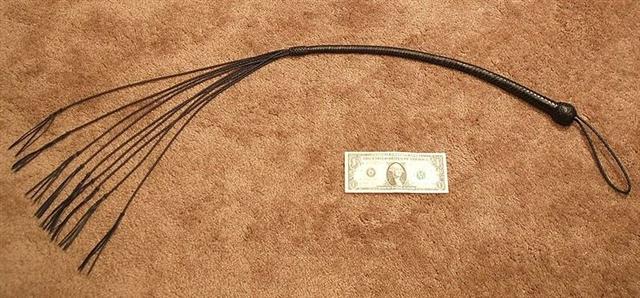 |
|
RIGHT
ASCENSION DAYS AT THE FULL MOON: |
|
Oct 1
(640 - 366) |
2
(275 = 93 + 182) |
3 (94
+ 182) |
|
JULY
29 (210 = 179 + 31) |
30 |
31
(29 + 183) |
|
κ
Crucis (194.4),
ψ
Virginis (194.5),
μ
Crucis,
λ
Crucis (194.6),
ALIOTH (Fat Tail) =
ε
Ursae Majoris,
ι
Oct.
(194.8)
*153.0 = *194.4 - *41.4 = 17 * 9 |
MIN-EL-AUVA
(Door of the Barker) =
δ
Virginis
(195.1),
COR CAROLI =
α
Canum Ven.
(195.3) |
δ
Muscae (196.5) ,
VINDEMIATRIX (Grape Gatherer) =
ε
Virginis
(196.8) |

... The medieval
names Auva, Al Awwa, and Minelauva
are from the Arabic, meaning
'barking (dog)'. This star, along
with β Vir (Zavijava), γ Vir
(Porrima), η Vir (Zaniah)
and ε Vir (Vindemiatrix),
were Al Awwā,
the Barker. On Euphrates it was
Lu Lim, the Gazelle, Goat, or
Stag, - or perhaps King; and, with
ε,
probably Mas-tab-ba,
another of the seven pairs of
Twin-stars of that country.
The
Hindus called it Āpa,
or Āpas,
the Waters; and the Chinese,
Tsze Seang,
the Second Minister of State ...
|
 |
 |
 |
|
Bb7-7 (250) |
Bb7-8 |
Bb7-9 (673) |
|
ko agaagata
hagu atu ki te tokerau |
|
Hagu. 1.
Breath, respiration, air. He haro
i te hagu a roto, to draw in
air, to breathe. He hakaea mai te
hagu, to breathe. 2.
Figuratively: sustenance, snack.
He gau i te hagu, to eat
something. He tuha te kai mo te
hagu o te tagata, the food was
shared for the men's sustenance. 3.
Figuratively: hagu gatu, a
great need, a pressing desire, such
as when you hold your breath in
expectation. He gatu te hagu,
to have a great desire of something
(lit. breath is held). He gatu
hau o te tagata ki te miro ki te
tu'u mai (or: mo te tu'u mai
o te miro), the people's great
desire for a boat to come. Te
matu'a e gatu ró mai te hagu ki
taana poki ana oho ki te tahi kaíga,
a father feels a great desire to see
his son again when he leaves for
another country. 4. Strength. Te
hagu o te rima, the strength of
the hands. Haguhagu, to pant.
Hagupotu, last born; also
used as a term of endearment to a
young person: e hagupotu ê,
ducky. Vanaga. 1. The temples. 2. (agu).
Haguhagu, convulsion, spasm,
convulsive. Hagupotu, younger
son, younger brother. Churchill.
Atu. Particle
of meaning opposite to that of
mai; it refers to the second or
third person, expressing movement
away: ka-avai-atu, give it to
him: he-oho-atu au, I am
going there, after you;
i-oho-atu-era, when I had gone
there. Vanaga. 1. a. Directive, of
motion from the speaker. b. Somewhat
expressive of the comparative
degree. 2. Pupil; hakaatu,
proof; hare hakaatuga,
schoolhouse, class. 3. (hakaatu),
to presage. 4. (hakaatu),
mark, object. Churchill.
... e-tahataha-á
te vaka o te tokerau. the boat
rocks from side to side because of
the wind ... ku-pa'e-á te vaka i
te tokerau, the wind has made
the boat deviate from its course ...
he-tá e te tokerau i te maga
miro, the wind shakes the
branches of the trees ... he-uéué
te kahu i te tokerau, the
clothes flutter in the wind ... |
|
April 5 |
6
(96 = 214 - 4 * 29½) |
7 |
|
... In China, every year about the
beginning of April, certain
officials called Sz'hüen used
of old to go about the country armed
with wooden clappers. Their business
was to summon the people and command
them to put out every fire. This was
the beginning of the season called
Han-shih-tsieh, or 'eating of
cold food'. For three days all
household fires remained extinct as
a preparation for the solemn renewal
of the fire, which took place on the
fifth or sixth day after the winter
solstice [Sic!] ... |
|
1h (15.2)
β Phoenicis (15.1), υ Phoenicis, ι
Tucanae (15.6), η Ceti, ζ Phoenicis
(15.7) |
Al Batn Al
Hūt-26 (Belly of the Fish)
/
Revati-28 (Prosperous) /
1-iku (Field Measure)
MIRACH (Girdle) =
β
Andromedae,
KEUN MAN MUN (Camp's South Gate) =
φ
Andromedae
(16.0),
ANUNITUM =
τ
Piscium
(16.5),
REVATI (Abundant) =
ζ
Piscium
(16.9)
REGULUS
(α Leonis) |
ν Phoenicis (17.4),
κ Tucanae (17.6)
*159.0 + *182.0 = 341.0 |
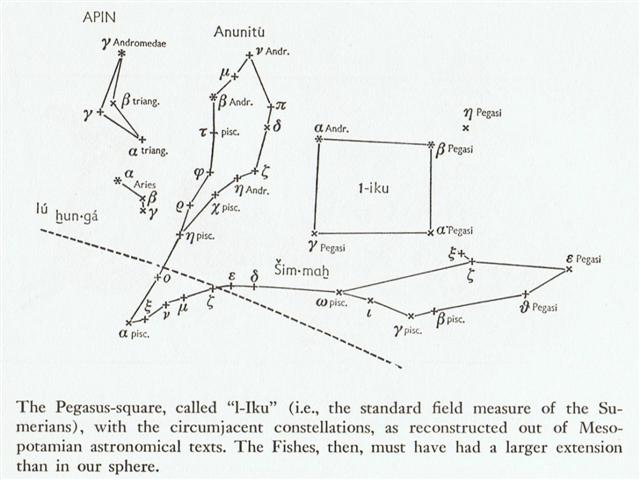 |
|
RIGHT ASCENSION DAYS AT THE FULL
MOON: |
|
Oct 4 (277) |
5 |
6 |
|
(213 = 197 + 80 - 64 = 197 + 16) |
AUG 2 (214
= 2 * 107) |
3
(29 + 186) |
|
13h (197.8)
ξ¹ Centauri (197.1), ξ² Centauri
(197.9) |
APAMI-ATSA (Child of Waters) =
θ
Virginis,
ψ
Hydrae (198.5),
DIADEM =
α
Com. Ber.
(198.9) |
AL DAFĪRAH (Tuft) =
β
Com. Ber.
(199.4)
*158.0 = *199.4 - *41.4 |
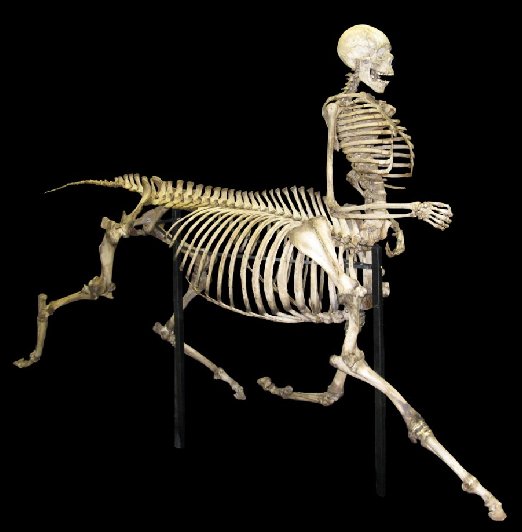 |
 |
 |
 |
 |
 |
 |
 |
|
Bb7-10 (674) |
(248 + 6) |
Bb7-12 (255) |
Bb7-13 |
Bb7-14 |
Bb7-15 |
Bb7-16 (680) |
|
kua moe
atu te manu |
ki raro
o tona manu
punua |
kua
vero koia |
kua moe
koia |
i te
eve o te manu |
ko te
tagata oho ia |
ka oho
oia |
|
Punua, burst of thunder.
Nua. 1. Mother; this
seems a more ancient word than
matu'a poreko. 2.
Blanket, clothing, cape formerly
made from fibres of the
mahute tree. Vanaga. Cloak
T. Churchill.
Nu'a 1. Thick; piled
one on top of the other, as
leis, mats, or ocean
swells; heaped; lush,
thick-growing; much traveled, as
a road; multitude, as of people,
mass. Also
hānu'a.
Moena kumu nu'a, a
sleeping mat made thick at one
end to serve as a head rest; lit.
'mat piled beginning'.
Nu'a
moena, a heap of
mats.
Nu'a kanaka, many
people.
Haki nu'a ka uahi i ke kai,
the spray breaks in masses in
the sea.
Ka nu'a o ka palai,
the thick clump of
palai ferns.
Ho'o nu'a, to heap
up; to give generously and
continuously; to indulge, as a
child; surging, rising in
swells, as the sea. 2. A kind of
seaweed. Nu'a-kea, a
goddess of lactation. Wehewehe.
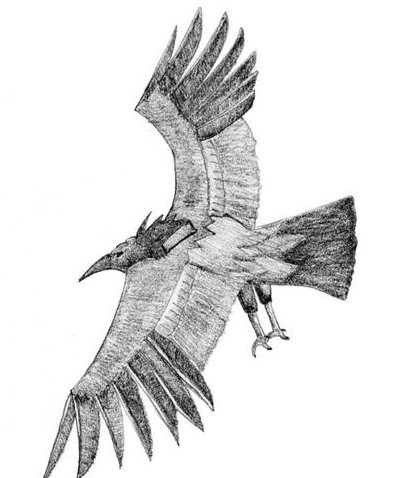
... The Raven
stole the skin and form of the
newborn child. Then he began to
cry for solid food, but he was
offered only mother's milk ...
Eve. 1.
Placenta, afterbirth (eeve).
T Pau.: eve, womb. Ta.:
eve, placenta. Ma.:
ewe, id. Haw.: ewe,
navel string. 2. The rear;
taki eeve, the buttocks;
hakahiti ki te eeve, to show
the buttocks; pupuhi eve,
syringe. 3. The bottom of the
sea. Churchill. |
|
April 8 |
9 (464) |
10 (100) |
11 (466) |
12 |
13 |
14 (104) |
|
No star listed (18) |
ADHIL (Garment's Train) = ξ
Andromedae
(19.3),
θ
Ceti (19.7) |
KSORA (Knee) =
δ
Cassiopeiae
(20.1),
ω
Andromedae (20.6),
γ
Phoenicis (20.8) |
δ Phoenicis (21.5) |
υ Andromedae (22.9) |
ACHERNAR (End of the River) =
α
Eridani
(23.3),
χ
Andromedae (23.6),
τ
Andromedae (23.9) |
ALSEIPH (Scimitar) =
φ
Persei
(24.5),
τ
Ceti (24.7) |
|
RIGHT ASCENSION DAYS AT THE FULL
MOON: |
|
Oct 7 (280) |
8 |
9 |
10 |
11 |
12 (285) |
13 (104 + 182) |
|
AUG 4
(*136) |
5 (210 + 7) |
6 |
7 |
8 (220) |
9 (*141) |
10 (104 + 118) |
|
... It was 4
August 1968, and it was the
feast day of Saint Dominic,
patron of Santo Domingo Pueblo,
southwest of Santa Fe. At one
end of the hot, dusty plaza, a
Dominican priest watched
nervously as several hundred
dancers arranged in two long
rows pounded the earth with
their moccasined feet as a
mighty, collective prayer [ui]
for rain, accompanied by the
powerful baritone singing of a
chorus and the beat of drums. As
my family and I viewed this, the
largest and in some ways the
most impressive Native American
public ceremony, a tiny cloud
over the Jémez Mountains to the
northwest got larger and larger,
eventually filling up the sky;
at last the storm broke, and the
sky was crisscrossed by
lightning and the pueblo
resounded with peals of rolling
thunder ...
 |
|
σ Virginis (200.4)
*159.0 = *200.4 - *41.4 |
γ
Hydrae (201.0),
ι
Centauri (201.4)
*160.0 = *201.4 - *41.4 |
Al
Simāk-12 (Lofty) /
Chitra-14 (Bright One)
/
Horn-1
(Crocodile) /
Sa-Sha-Shirū-19
(Virgin's Girdle)
/
ANA-ROTO-3
(Middle pillar)
MIZAR =
ζ
Ursae Majoris (202.4),
SPICA =
α
Virginis,
ALCOR = 80 Ursae Majoris
(202.7)
SADALMELIK (α Aquarii)
*161.0 = *202.4 - *41.4 |
71 VIRGINIS
(203.6) |
No star listed (204) |
HEZE =
ζ
Virginis
(205.0),
SOUTHERN PINWHEEL GALAXY = M83
Hydrae
(205.7) |
ε Centauri (206.3),
κ Oct. (206.4)
*165.0 = *206.4 - 41.4
|
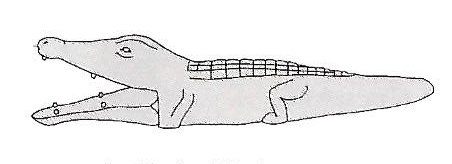 |
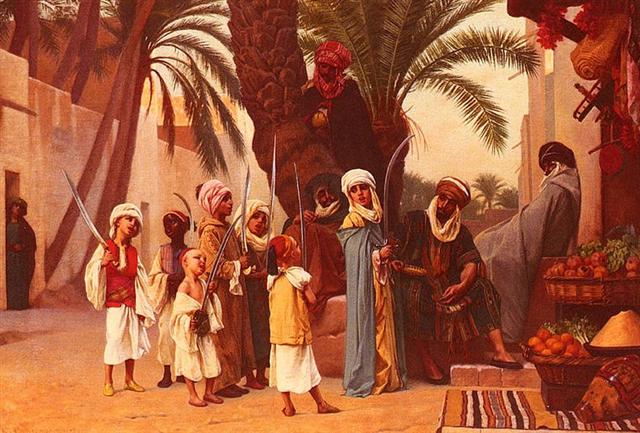
 |
 |
 |
 |
 |
 |
 |
|
Bb7-17 |
Bb7-18 |
Bb7-19 |
Bb7-20 (684) |
Bb7-21 (264) |
Bb7-22 |
Bb7-23 |
|
ka mau i te
maro mai tae hokohuki |
kua haati - ki
te huaga |
o to maitaki |
i te henua -
kua vari koia |
kua maga |
i to hou |
kua moe |
|
Vari,1.
Menstruation, period (also: tiko).
2. To tack, to veer (nautical);
ku-vari-mai-á te miro, the boat
arrives, have veered [around Rano
Kau]. Vanaga. About,
circumference, to turn in a circle;
hakavari, pliant, to bend,
square; varivari, about, to
go around; vavari, a garland;
varikapau, circumference, to
surround, a compass, to admire;
hiriga varikapau, to go in a
ring; pa varikapau, to close
in; varitakataka (vari-taka
3) to surround. Churchill. Pau.:
Vari, marsh, mire, dirt. Ta.:
vari, dirt, mud. Rar.: vari,
mud. Churchill. Mgv.: Vari,
paste well diluted. Mq.: vaivai,
to dilute, to thin. Ha.: waliwali,
soft, pasty. Churchill.
Maga. Branch
(of tree). Magahaiga, part of
the arm near the armpit, armpit.
Magamaga: 1. Finger (rima
matu'a neanea, thumb; tuhi
henua, index finger; roaroa
tahaga, middle finger; tuhia
háûa, ring finger;
komaniri-komanara, little
finger). 2. Seaweed (shaped like
small fingers). Vanaga. 1. (mama
2) A mouthful; maga nuinui,
to gobble. 2. Garbage. 3. Index
finger. 4. A branch; magamiro,
a branch, a limb; magamaga,
fork, finger, claw, rod; magamaga
miro, a branch, a limb;
magamaga rima, finger;
magamaga vae, toe; magamaga
tumu, great toe; hakamaga,
a roof; magaga, fork;
magatuhi, index finger;
hakamagaturu, slope of a roof.
Churchill.
Hou. 1. To
perforate, to drill. P Pau.:
fakahou, to furrow, to groove,
to plow. Mgv.: hou, ouou,
a drill, a wimble, a borer, a
gimlet, to pierce with a drill. Mq.:
hou, an auger, a drill, a
wimble, corkscrew, to pierce with a
drill. Ta.: hou, auger, to
drill. 2. New, fresh, modern,
recent, young, youth; rae ki te
mea hou, to innovate; hou
anei, modern. Hakahou, to
reiterate, reparation, to restore,
to recapitulate; haga hakahou,
to make over, to renew, recovery;
avai hakahou, a loan, to borrow;
rere hakahou mai, to rebound;
hakahou iho, to recommence. P
Pau.: hou, young, new. Mgv.:
hou, new; akahou, to
renew. Mq.: hou, new, recent,
fresh, young. Ta.: hou, new,
recent, before. Churchill. |
|
April 15 |
16 |
17 (107) |
18 |
19 |
20 |
21 |
|
No star listed (25) |
ANA-NIA-10
(Pillar-to-fish by)
χ
Ceti (26.1),
POLARIS =
α
Ursae Minoris,
BATEN KAITOS (Belly of the Fish) =
ζ
Ceti
(26.6),
METALLAH =
α
Trianguli
(26.9) |
Al
Sharatain-1 /
Ashvini-1 /
Bond-16
(Dog) /
Mahrū-sha-rishu-ku-1 (Front of the
Head of Ku)
SEGIN =
ε
Cassiopeia, MESARTHIM =
γ
Arietis,
ψ
Phoenicis (27.2),
SHERATAN (Pair of Signs) =
β
Arietis,
φ
Phoenicis (27.4)
*351.0 = *27.4 - *41.4 |
ι Arietis (28.0), λ Arietis (28.2),
υ Ceti (28.8) |
ALRISHA (The Knot) = α Piscium, χ Phoenicis (29.2),
ε Trianguli (29.4),
ALAMAK
(Caracal) = γ Andromedae
(29.7)
*353.0 = *29.4 - *41.4 |
Arku-sha-rishu-ku-2 (Back of the
Head of Ku)
2h (*30.4 = *354.0 + *41.4)
κ
Arietis (30.3),
HAMAL
(Sheep) =
α
Arietis
(30.5)
ALKES (α
Crateris) |
DELTOTUM = β Trianguli
(31.2), ι Trianguli (31.7), η
Arietis (31.9) |
|
RIGHT ASCENSION DAYS AT THE FULL
MOON: |
|
Oct 14 |
15 (288) |
16 |
17 |
18 |
19 (288 + 4) |
20 |
|
AUG 11 |
12 (224) |
13 |
14 |
15 |
16 (224 + 4) |
17 |
|
No star listed (207) |
τ
Bootis (208.2),
BENETNASH (Leader of the Daughters
of the Bier) =
η
Ursae Majoris
(208.5),
ν
Centauri (208.7),
μ
Centauri,
υ
Bootis (208.8) |
No star listed (209) |
MUPHRID (Solitary Star) = η Bootis
(210.1), ζ Centauri (210.3) |
φ Centauri (211.0), υ¹ Centauri
(211.1), υ² Centauri (211.8), τ
Virginis (211.9) |
AGENA (At the Knee) =
β
Centauri
(212.1),
θ
Apodis (212.5),
THUBAN (Dragon) =
α
Draconis
(212.8) |
14h (213.1)
π Hydrae,
χ
Centauri (213.0),
MENKENT (Shoulder of the Centaur) =
θ
Centauri
(213.1) |
 |
 |
 |
 |
 |
 |
 |
 |
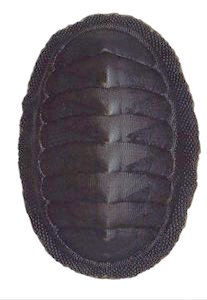 |
|
Bb7-24 |
Bb7-25 |
Bb7-26 (690) |
Bb7-27 |
Bb7-28 |
Bb7-29 |
Bb7-30 (273) |
Bb7-31 |
|
i to
maro - ku vero - kia ia |
e kua
rere te tagata - i ruga o te
mauga |
kua aga
ko te pito |
koia
kua rere - ki ruga o rere te
taketake |
ihe
mama
ïa |
kua
tupu te mauga ia ia |
ko te
mata o te hetuke |
kua oho
kua moe |
|
Aga.
Work; to work, to make, to
build, to create: O te atua
i-aga-ai i te ragi, i te henua.
God made heaven and earth.
Vanaga. Agahuru (hagahuru,
hagauru). Agai (hagai).
Agatahi (aga-tahi)
one, (hagatahi);
agatahi ahi atu, day before
yesterday; hagatahi ahi,
yesterday. Churchill.
Take. The Marquesans
are the only people who own to a
distinctive national name, and
retain a tradition of the road
they travelled from their
original habitat, until they
arrived at the Marquesan
Islands. They call themselves
te Take, 'the Take
nation'. Fornander. Take,
Tuvaluan for the Black Noddy (Anous
Minutes). The specific
epithet taketake is Māori
for long established, ancient,
or original. In the Rapa Nui
mythology, the deity
Make-make was the chief god
of the birdman cult, the other
three gods associated with it
being Hawa-tuu-take-take
(the Chief of the eggs) his wife
Vie Hoa and Vie
Kanatea. Wikipedia.
Mama. 1.
To chew. 2. To mouth-feed
(arch.) he-mama i te vai tôa
koia ko te tiapito kiroto ki te
haha o te poki, she
mouth-feeds the child with
sugarcane juice together with
tiapito juice. 3. A sea
mollusc (with an eight-horned
shell). Vanaga. 1. To leak, to
ooze, (maamaa). P Pau.,
Mgv., Ta.: mama, id. 2.
To chew. P Mgv., Mq., Ta.:
mama, id. 3. Light not
heavy, (maamaa). P Mgv.,
Ta.: mama, id. 4. A
limpet (Chiton magnificus).
Mgv., Mq., mama, a
shellfish. 5. To open the mouth;
hakamama, to yawn, to
gape, to be ajar. Pau.:
hamama, to open. Mgv.:
akamama, to burst open. Ta.:
haamama, to open. Mq.:
haámama, to open the mouth.
6. Ta.: mama-orero,
conclusion of a council. Ha.:
mama, to finish, to have
done with a thing. Churchill.
Hetu 1.
To (make) sound;
figuratively:
famous, renowned. 2. To crumble into embers (of a
bonfire). Hetu'u. Star,
planet; hetu'u popohaga
morning star; hetu'u ahiahi evening star; hetu'u viri
meteorite. Vanaga. Hetu
1. Star (heetuu); hetu
rere, meteor; hetu pupura,
planet. P Pau.: hetu,
star. Mgv.: etu, id. Mq.:
fetu, hetu, id.
Ta.: fetu, fetia,
id. The alternative form
fetia in Tahiti, now the
only one in common use, need not
be regarded as an anomaly in
mutation. It seems to derive
from Paumotu fetika, a
planet. Its introduction into
Tahiti is due to the fashion of
accepting Paumotu vocables which
arose when the house of
Pomare came into power. 2.
Capital letter (? he tu).
3. To amuse. 4. To stamp the
feet. Hetuhetu, to calk,
to strike the water. Hetuke,
sea urchin. Churchill.
Ke. 1. Other; different;
different being; hare ké,
a different house;
e-ké-ro-á... e-ké-ro-á...
there are some who... and others
who...; me'e ké,
something distinct, different:
te puaka ina oona kuhane;
me'e ké te tagata, he hakari
oona, he kuhane, an animal
has no soul; man is different,
he has a body, and a soul;
matu'a ké, the other
relatives. 2. Ké te kairua,
person who turns up for
meals at other people's homes.
3. Used in exclamations:
hahau ké! what a cool
breeze!; hana ké! how
hot! takeo ké! how cold!
Vanaga. Other, distinct,
different, diverse, otherwise;
koona ke, elsewhere;
tagata ke, some one else;
mea ke, contrary, distinct,
otherwise; hakake, feint,
stratagem, to feign; hagake,
to act contrary. T Pau.: ke,
different. Mgv.: ke,
another, other, else, different,
of partial comparative value.
Mq.: ke, é, to be
different, changed, no longer
the same. Ta.: e,
different, strange, other.
Churchill. |
|
April 22 |
23 |
24 |
25 |
26 |
27 |
28 (118) |
29 |
|
FEBR 17 |
18 |
19 |
20 |
21 (52) |
22 (418) |
TERMINALIA |
|
|
ξ¹ Ceti (32.1) |
γ,
δ
Trianguli (33.0),
χ
Persei (33.2),
10 Trianguli
(33.5),
θ
Arietis (33.3),
MIRA
(Astonishing) =
ο
Ceti
(33.7) |
No star listed (34) |
ξ Arietis (35.0), ρ Ceti (35.4), 12 Trianguli (35.8), ξ² Ceti (35.9)
*360.0 = *35.4 - *41.4 |
σ Ceti (36.9) |
ν Ceti (37.9) |
ν Arietis (38.5), δ, ε Ceti
(38.8) |
μ
Arietis (39.4), HEAD OF THE FLY
= 35 Arietis
(39.6),
KAFFALJIDHMA (Part of a Hand) =
γ
Ceti,
θ
Persei (39.8)
*363.0
= *39.4 - *41.4 |
|
RIGHT ASCENSION DAYS AT THE FULL
MOON: |
|
Oct 21 |
22 (295) |
23 |
24 |
25 |
26 |
27 (300) |
28 |
|
... the
Explorers had left Easter Island
5 days later in October 25 [E:86].
This ought to indicate a major
change. When reading the A and C
texts Metoro seems to here have
suggested the sky was moving (ragi-maeva)
... |
|
AUG 18 |
19 |
20 |
21 |
22 |
(418 - 183) |
24 (8 * 29½) |
25 (237) |
|
Neck-2 (Dragon)
ASELLUS TERTIUS (3rd Ass Colt) =
κ
Bootis,
κ
Virginis,
14 Bootis
(214.8) |
Al
Ghafr-13 (The Cover)
/
Svāti-15 (Very Good)
/
TAHUA-TAATA-METUA-TE-TUPU-MAVAE-6
(a pillar to stand by)
15 Bootis
(215.2),
ARCTURUS =
α
Bootis (215.4),
ASELLUS SECUNDUS (2nd Ass Colt)
=
ι
Bootis
(215.5),
SYRMA (Train of the Virgin's
Robe) =
ι
Virginis,
λ
Bootis (215.6),
η
Apodis (215.8)
*174.0 = *215.4 - *41.4 |
ι Lupi,
18 Bootis
(216.3),
KHAMBALIA (Crooked-Clawed) = λ
Virginis (216.4),
υ Virginis (216.5), ψ Centauri
(216.6), ε Apodis (216.8)
*175.0 = *216.4 - *41.4
|
ASELLUS PRIMUS (1st Ass Colt) =
θ
Bootis
(217.8) |
τ
Lupi,
δ
Oct. (218.1),
φ
Virginis (218.7)
FOMALHAUT (α Piscis Austrini) |
σ
Lupi (219.1),
ρ
Bootis (219.5),
HARIS (Keeper) =
γ
Bootis
(219.7) |
σ Bootis (220.2),
η Centauri (220.4)
*179.0 = *220.4 - *41.4 |
ρ Lupi (221.0),
TOLIMAN = α Centauri
(221.2), π Bootis (221.8), ζ
Bootis (221.9) |
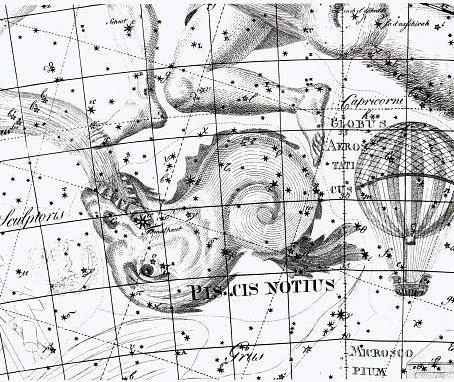 |
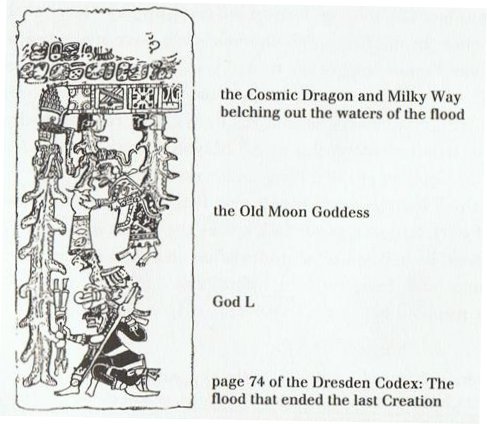
Here the text changes character and instead
of a watery existence a fresh new world
emerges from the waves:
...
The earth rises up from
the sea again, and is green and beautiful
and things grow without sowing. Vidar and
Vali are alive, for neither the sea nor the
flames of Surt have hurt them and they dwell
on the Eddyfield, where once stood Asgard.
There come also the sons of Thor, Modi and
Magni, and bring along his hammer. There
come also Balder and Hoder from the other
world. All sit down and converse together.
They rehearse their runes and talk of events
of old days. Then they find in the grass the
golden tablets that the Aesir once played
with. Two children
of men will also be found safe from the
great flames of Surt. Their names, Lif and
Lifthrasir, and they feed on the morning dew
and from this human pair will come a great
population which will fill the earth. And
strange to say, the sun, before being
devoured by Fenrir, will have borne a
daughter, no less beautiful and going the
same ways as her mother.'
Then, all at once, concludes Snorri's tale
wryly, a thunderous cracking was heard from
all sides, and when the King looked again,
he found himself on the open plain and the
great hall had vanished
...
 |
 |
 |
 |
 |
|
Bb7-32 (275) |
Bb7-33 |
Bb7-34 |
Bb7-35 |
Bb7-36 (700) |
|
i to huki - o to maro |
e tagata - hua era |
e tagata noho |
ki to manu e |
kua moe koe |
|
April 30 |
May 1 (121) |
2 |
3 |
4 |
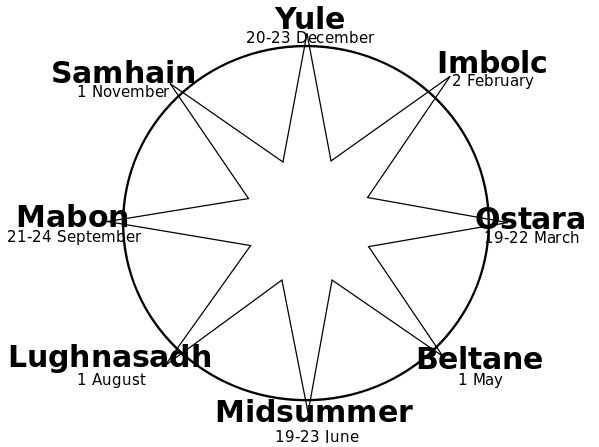 |
|
RIGHT ASCENSION
STARS AT THE FULL MOON: |
|
31 Bootis
(222.0),
YANG MUN (South Gate) =
α
Lupi
(222.1),
RIJL AL AWWA (Foot of the Barker) =
μ
Virginis
(222.5),
ο
Bootis (222.9) |
IZAR (Girdle) =
ε
Bootis
(223.0),
109 Virginis,
α
Apodis (223.3),
μ
Librae (223.8) |
Al Zubānā-14a (Claws)
/
Visakha-16 (Forked)
/
Root-3 (Badger)
ZUBEN ELGENUBI (Southern Claw) =
α
Librae
(224.2),
ξ
Bootis,
ο
Lupi (224.5) |
KOCHAB (Kakkab) = β Ursae Min. (225.0),
ξ Librae (225.7) |
KE KWAN (Cavalry Officer) =
β Lupi
(226.3),
KE KWAN =
κ
Centauri (226.4), ZUBEN ELAKRIBI (Claw of the
Scorpion) =
δ
Librae
(226.8),
π¹
Oct.
(226.9) |
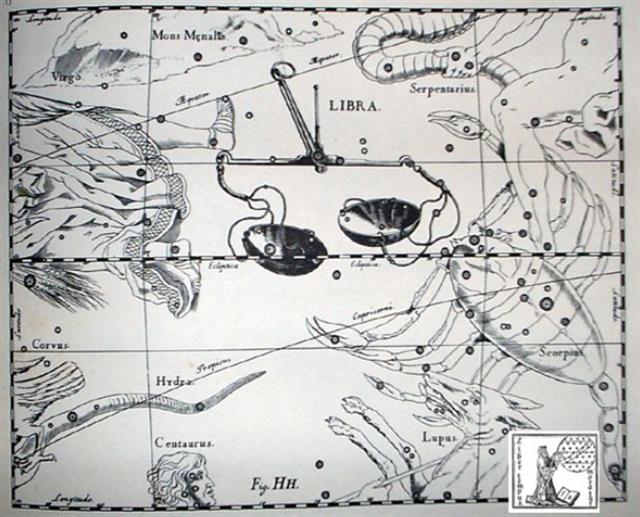 |
 |
 |
 |
 |
 |
|
Bb7-37 (280) |
Bb7-38 |
Bb7-39 |
Bb7-40 |
Bb7-41 (284) |
|
i to huki o to maro |
e inoino - ma to huki |
e inoino - i to huki kua haga - i
to maro |
e te inoino e - kua huki koe |
i te tagata |
|
Inoino. Ce qui est éclarante, rayonnant.
Jaussen according to Barthel.
Kino. 1. Bad; kikino, very bad, cursed;
kona kino, dangerous place. 2. blemish (on
body). Kinoga, badness, evil, wickedness;
penis. Kinokino, badly made, crude: ahu
kinokino, badly made ahu, with coarse,
ill-fitting stones. Vanaga. 1. Bad, wrong. T Pau.:
kiro, bad, miserable. Mgv.: kino, to
sin, to do evil. Mq.: ino, bad, abominable,
indecent. Ta.: ino, iino, bad, evil;
kinoga (kino 1) sin; Mgv.: kinoga,
sin, vice. 2. A skin eruption, verruga, blotched
skin, cracked feet T. Churchill.
... In South America the rainbow has a double
meaning. On the one hand, as elsewhere, it announces
the end of rain; on the other hand, it is considered
to be responsible for diseases and various natural
disasters [dis-aster]. In its first capacity the
rainbow effects a disjunction between the sky and
the earth which previously were joined through the
medium of rain. In the second capacity it replaces
the normal beneficient conjunction by an abnormal,
maleficient one - the one it brings about itself
between sky and earth by taking the place of water
...
Huki.
1. Pole attached to the poop from which the
fishing-net is suspended: huki kupega. 2.
Digging stick. 3. To set vertically, to
stand (vt.). 4. Huki á te mahina, said of the
new moon when both its horns have become visible.
Vanaga. 1. To post up, to publish. 2. To cut the
throat (uki). Mq.: Small sticks which close
up the ridge of a house. Ha.: hui, the small
uniting sticks in a thatched house. Churchill.
Standing upright. Barthel. M. Spit for roasting.
Te Huki, a constellation. Makemson. Hukihuki.
1. Colic. 2. To transpierce, a pricking. 3. To sink
to the bottom. Churchill. |
|
May 5 |
6 |
7 |
8 |
9 (129) |
|
RIGHT ASCENSION
STARS AT THE FULL MOON: |
|
ω Bootis (227.2),
NEKKAR (Herdsman) = β Bootis
(227.3), σ Librae (227.5), π² Oct. (227.7),
NADLAT (Mean Little Ones) = ψ Bootis
(227.8), π Lupi (227.9) |
15h
(228.3)
ZUBEN HAKRABIM = ν Librae
(228.3), λ Lupi (228.9) |
ω
Oct. (229.3),
ι
Librae (229.6),
κ
Lupi (229.7),
ζ
Lupi (229.8) |
Al Zubānā-14b (Claws)
χ
Bootis (230.3),
PRINCEPS =
δ
Bootis
(230.6),
ZUBEN ELSCHEMALI (Northern Claw) =
β
Librae
(230.8) |
μ
Lupi,
γ
Tr. Austr.
(231.3), ο Librae (231.8) |
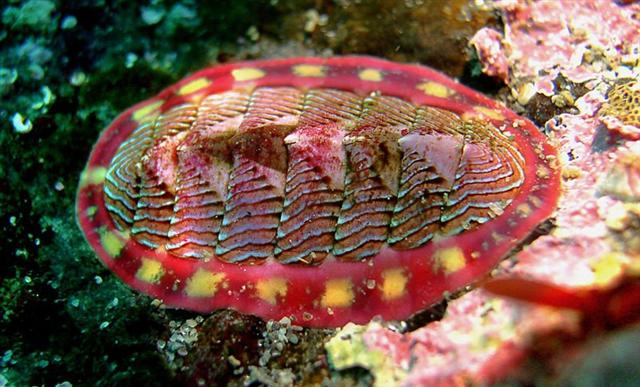
|











































